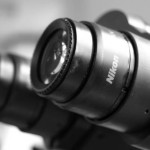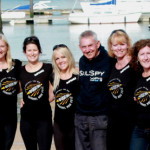This in from Wightlink, in their own words. Ed
Marine engineers from the University of Southampton are becoming ‘science buskers’ this summer to showcase the significance of their work and to raise awareness of engineering’s importance in global ocean use.
The ‘Marine Engineering Connections’ project will see around 30 engineers engage and entertain holidaymakers travelling to and from the mainland to the Isle of Wight over 10 summer weekends.
Science busking on Wightlink ferries
The engineers will be trained in science-busking techniques to captivate, educate and start informal dialogues with holiday travellers on Wightlink’s most popular routes between Portsmouth and Fishbourne and Lymington to Yarmouth.
The ‘buskers’ will explore current and future maritime challenges, such as climate change, energy, coastal habitats, trade and transport), turning a routine 40-minute sea crossing into an exciting engineering journey.
Hands-on activities
Using a specially-designed marine engineering toolkit, engineers will give three 10-minute ‘busks’ to small groups of passengers by moving around the ship’s open areas and stopping where appropriate. Activities will all be hands-on, in the sense that the engineer can hand the kit over to a passenger to demonstrate to others while the engineer offers a commentary on the principle/effect on display.
For instance, a participant engineer might use a wave tube to demonstrate the effect of turbulence on the seabed and open dialogue with surrounding passengers about how to engineer solutions to minimise this impact. Depending on the conversation, the engineer might relate this to their own work practice or research, and encourage connections to be made between the ferry and global sea transport.
Connecting marine engineers with the wider public
Dr Steve Dorney, Public Engagement Tutor at the University of Southampton, says:
“This project was driven by our desire for an innovative way to connect our marine engineers with the wider public. We have seen (on other projects) how powerful the busking methodology can be, and realised that the relatively short journey times of the Solent ferry routes provided a perfect maritime platform for this activity.”
John Burrows, Operations Director for Wightlink, adds:
“Wightlink has a long standing relationship with the University of Southampton. In recent years we have acted as a case study for a Group Design Project looking at vessel design and currently sponsor a Research Studentship Project. We are delighted to be working closely with the University with this venture. At the recent trial run, everybody who saw the busking was absolutely entranced and could not wait to have a go themselves. Over a busy weekend we can carry over 30,000 passengers and I hope large crowds will gather to enjoy the show.”
Funded through public engagement grant scheme
Marine Engineering Connections, which is funded through the Royal Academy of Engineering’s public engagement grant scheme, Ingenious, is led by the Southampton Marine and Maritime Institute (SMMI) at the University of Southampton, in partnership with Wightlink and Lloyd’s Register.
By 2014, Lloyd’s Register will have moved to be co-located with SMMI on a purpose-built campus site in Southampton. The partnership between the University and Lloyd’s Register is currently the largest academic/industry partnership in the world and is set to maximise marine engineering connections across academia and industry.
Marine engineers are particularly important
Nick Brown, Marine Communications Manager for Lloyd’s Register, says:
“We hope this will raise awareness of the importance of engineering. It is the world’s engineers working in partnership with industry and academia who will help forge a future that works. And marine engineers are particularly important. Without ships there is no world trade, so we need the engineers of the future to be excited about the sea and how ships work.”
Image: Nic McPhee under CC BY 2.0





